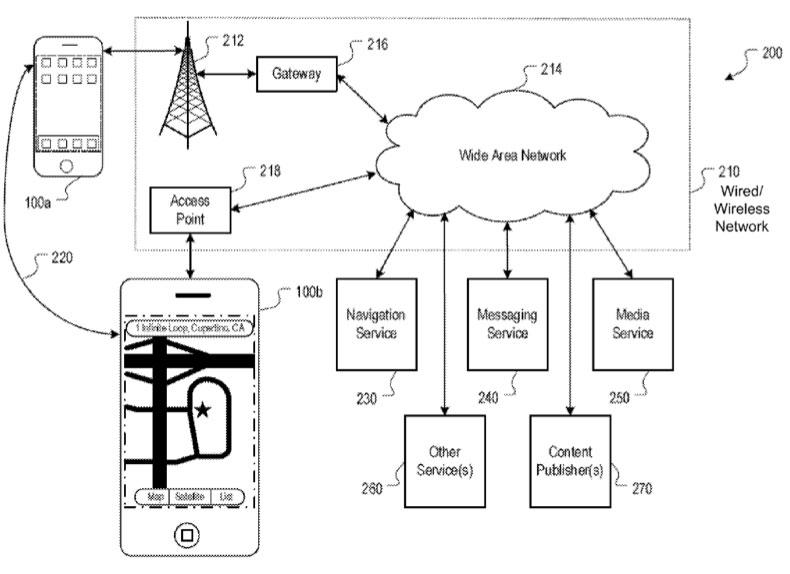Future iPhone software could provide dynamic, GPS-enabled calendar alerts and alarms that could identify a user's location and offer relevant information, such as estimated travel time.
Apple's work on such technology was revealed this week in a new patent application discovered by AppleInsider, entitled "Dynamic Alerts for Calendar Events." The application, just made public by the U.S. Patent and Trademark Office, describes a system that could dynamically issue an alarm to users based on their current location.
Using GPS and a user's calendar events, the system could determine how long it will take for the person to travel to their scheduled event. The iPhone software could then alert the user accordingly, allowing ample time to travel and meet the scheduled deadline.
Using a GPS signal, the iPhone could even determine travel time based on external factors, such as current or historical traffic conditions. Apple's system would provide users with the best route based on this data, and alert them accordingly.
Apple could even rely on crowd-sourced data to create such a system, offering up routes to users based on scheduled events such as concerts, sporting events, movies, public gatherings, and even retail store sale events.
The application notes that calendar entries stored on devices like the iPhone usually include extensive detail, including date, time, location, duration, subject and participants for an appointment or meeting. Calendar applications also usually offer an alarm indication a certain length of time before the start of the appointment, but this alarm is only presented based on a pre-set time and not real-world conditions.

Apple's system would rely on a variety of available data to ensure that users arrive at their meeting on time, taking into consideration weather, changing road conditions, or public transportation schedules.
The proposed invention, made public this week, was first filed by Apple in November of 2009. It is credited to Geoffrey G. Stahl and Teck Yang Lee.
The publication of the patent application comes soon after Apple publicly admitted it is building a "crowd-sourced traffic" service for iPhone users. The company indicated that it has been collecting users' location data anonymously in order to an "improved traffic service" that was said to arrive in "the next couple of years."
The timing stated in Apple's letter would suggest that any new traffic-related features may not be presented next week, when the company will unveil iOS 5, the next major update to its mobile operating system for the iPhone, iPad and iPod touch. If Apple does unveil its own traffic-related service, it will likely rely on Google Maps, as the iPhone maker just renewed its contract with the search giant for such data, Google Executive Chairman Eric Schmidt revealed this week.


